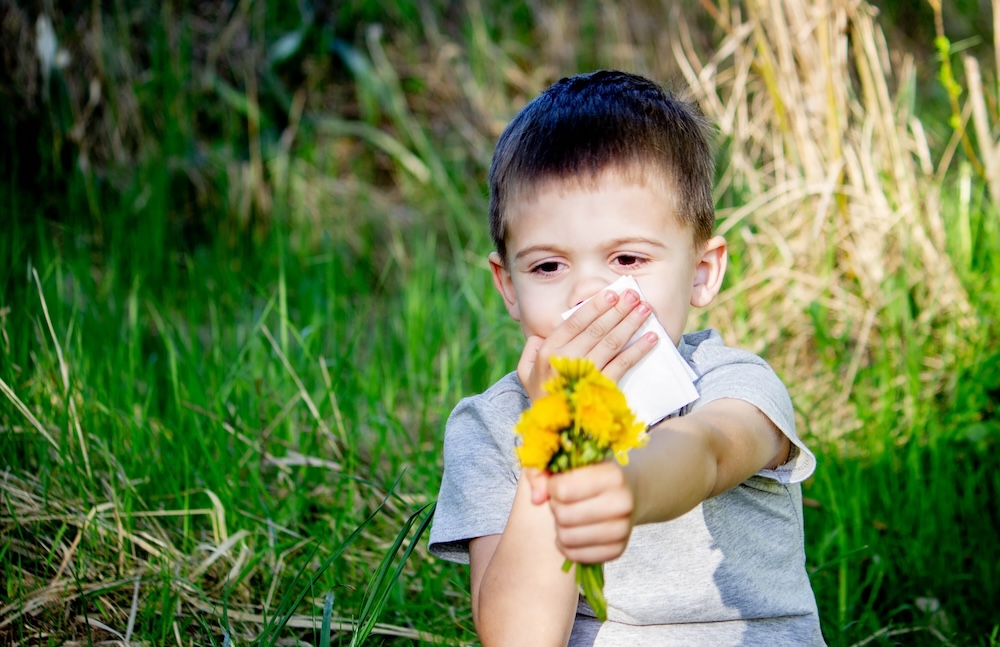Springtime is known for seasonal allergies as this is the season when trees and plants begin to pollinate. And unfortunately, changes in temperature and more rainfall can worsen allergies. Allergies occur when the body’s immune system overreacts to certain substances in the environment. If your child suffers from allergies, it’s important to be prepared for the spring season.
Common symptoms of allergies are similar to those of a common cold, such as a runny and stuffy nose, sneezing, sniffling, headaches, fatigue, eye irritation, coughing, sore throat, itchiness, and sometimes even rashes or hives. If you notice any of these, your child might have allergies and we recommend calling our office to make an appointment for an evaluation. If your child does have seasonal allergies, know that there are several options for management and that it’s essential to start right away before symptoms worsen and lead to a sinus or ear infection.
One of the most important things to do is to limit your child’s exposure to pollen and mold as much as possible. That doesn’t mean your child can’t go outside, but they should stay indoors when it’s particularly windy or the grass is being mowed. They should also avoid going near pollen or decaying vegetation and dead leaves as these can contain mold.
At home, it’s beneficial to turn on an air conditioner and an air purifier as both of these can filter out the air. However, both the air conditioner and air purifier should be properly maintained and cleaned in order to work efficiently and help with allergies. When kids return indoors from playing outside, make sure that they change their clothes and shoes that might have pollen on them and take a bath. Pets should also be brushed when brought back inside. Regularly vacuum and dust the house to get rid of any allergens as well. A clean and dust-free house is very important for treating seasonal allergies.
To help manage congestion when reducing exposure is not enough, you can give your child over-the-counter nasal sprays, decongestants, and antihistamines. If your child struggles with hives or rashes, antihistamines, like Benadryl, can alleviate these symptoms. For itchy or irritated eyes, over-the-counter eye drops for allergies are helpful. It’s important to first to talk to a pediatrician before using any of these and to also get their advice on the proper usage and dosage. When any of these treatments don’t work, your child may benefit from allergy immunotherapy which can desensitize your child’s allergy response.
Another important thing to keep in mind about allergens is that they can be especially triggering to children with asthma. Not all kids with allergies have asthma, but at least 80% of kids with asthma have allergies. Allergens can cause asthma attacks so it is crucial that children with asthma avoid exposure.
If you believe your child’s allergies are out of hand or they’re experiencing severe symptoms, contact our office. Our pediatrician can also guide you on treatment options and how to create an asthma plan.




